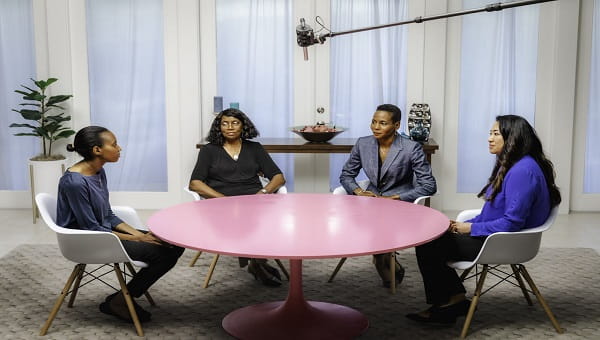Bonding with Your Baby

Bonding is the intense attachment that develops between parents and their baby. It's the feeling that makes you want to shower them with love and affection, or do anything to protect them. Most babies are ready to bond immediately. With parents it can also be immediate; for some parents it may take a little longer. Bonding is a process, not something that takes place within minutes. Scientists are still learning a lot about bonding. They know that the strong ties between parents and their baby provide the first model for future intimate relationships. Bonding can help give your baby a sense of security.
The Ways Babies Bond
It can take some time to understand your new baby and all the ways they communicate:
- Touch: Babies respond to skin-to-skin contact. It's soothing for both you and your baby.
- Eye-to-eye contact provides meaningful communication before baby can speak or understand.
- Watching their surroundings: Babies can follow moving objects with their eyes.
- Your baby will try early on to imitate your facial expressions and gestures.
- Babies prefer human voices and enjoy vocalizing – this is their first effort at communication.
Making That Attachment
Bonding is probably one of the most pleasurable aspects of caring for your baby. You can begin by cradling your baby and gently rocking them. If you and your partner hold and touch them frequently, your baby will soon know the difference between your touches. Other bonding activities include:
- Have plenty of skin-to-skin time. Human touch is soothing for both you and your baby.
- Talk to your baby. Soon they’ll get to know the sound of your voice.
- Eye contact is important. Look into your baby's eyes while you talk and sing to him.
- Carry your baby in a front carrier or a sling. Feeling your baby's warmth and looking down often to make eye contact can help you bond.
- Have face time with your baby. Smile at them and return the smile when they smile back. And when you coo, they'll coo back. Soon you'll be having an unspoken “conversation” with them.
- Read to your baby every day. Again, the sound of your voice is important.
- Look in the mirror together. They may not know what their reflection is, but babies like different visual stimulation.
- Have a baby fashion show. Trying on all those new outfits is fun for you, and baby will enjoy all the touching and personal attention.
- Make a favorite playlist so you can sing and dance with your baby. It’s good for them to hear your voice often, and gentle movement can be soothing for them.
Bonding can take time. There's no magic formula and it can't be forced. If you don't feel like you're bonding by the time you take your baby to their first doctor’s visit, talk to your doctor. It may be a sign of postpartum depression. Or bonding can be delayed if your baby had significant health issues. Becoming a parent is a major, overwhelming change, and it's natural to feel a lot of complex emotions.
Visit BayCare.org to learn about support groups that can help.





